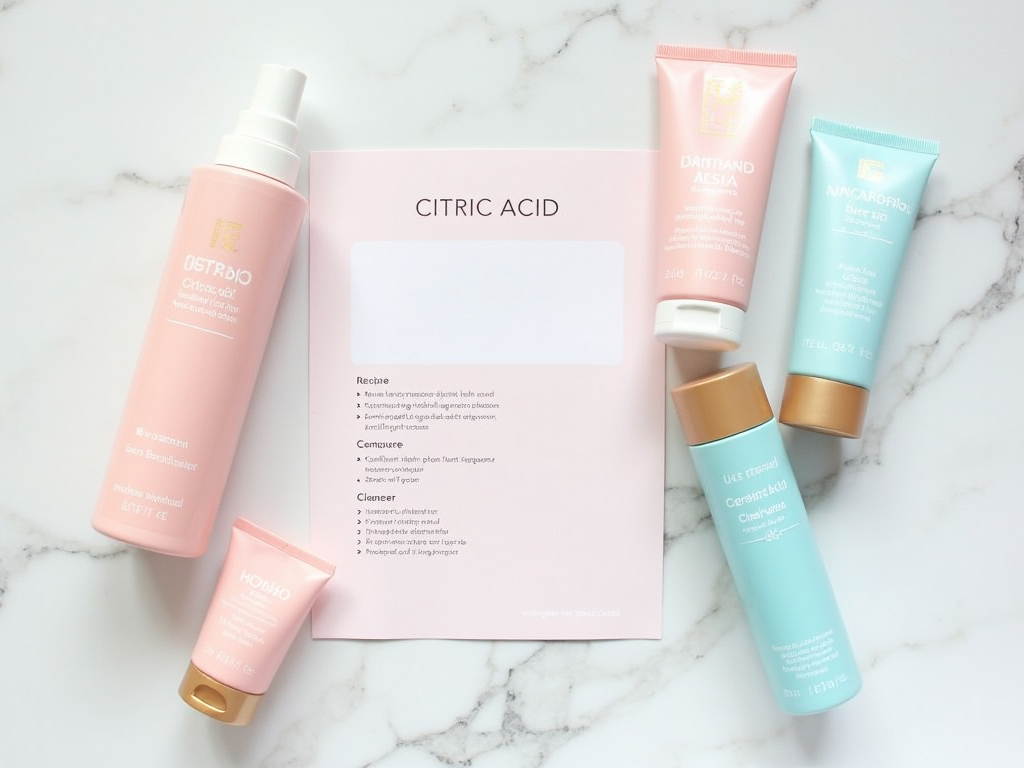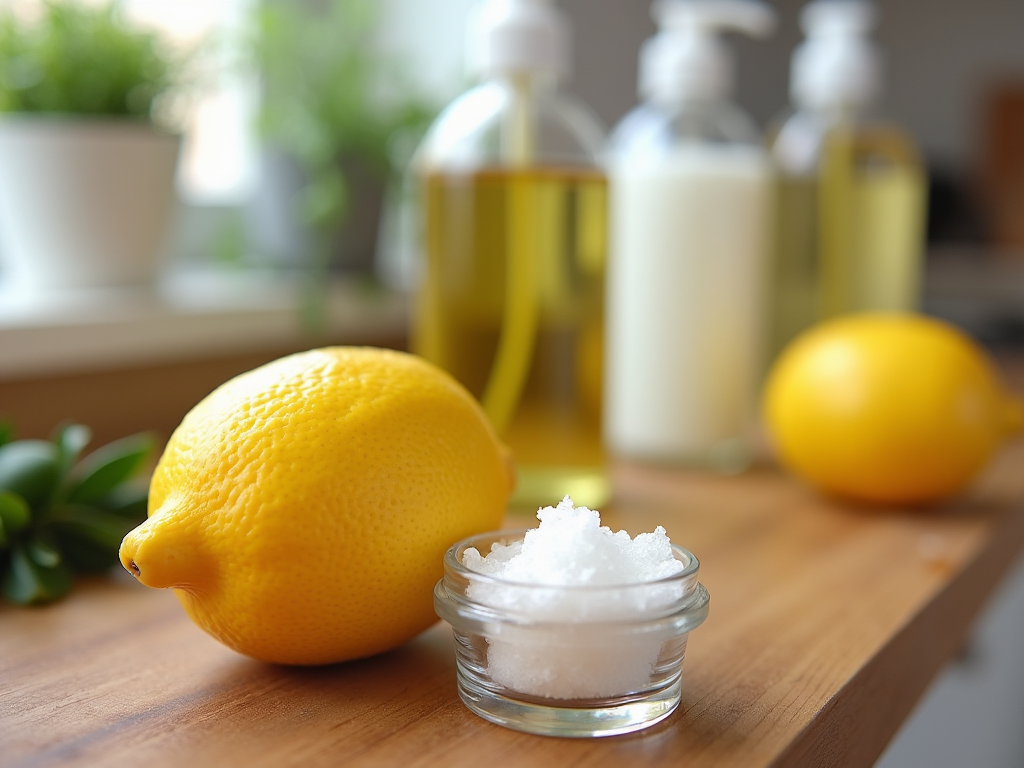Citric acid, the powerhouse ingredient often found in nature’s most vibrant fruits, does wonders for your skin beyond its cosmetic applications. This organic acid is revered not just for its tangy taste but also for its significant contributions to skincare. As more people are adopting a natural approach to beauty and wellness, the spotlight is shining on substances like citric acid that seamlessly integrate into daily routines. Its multifaceted benefits, including exfoliation and brightening, have garnered a loyal following in the beauty community. Moreover, understanding the right ways to utilize this acid can transform how you care for your skin. Let’s delve deeper into the exciting world of citric acid and explore all its advantages for achieving radiant skin.
What is Citric Acid?

Citric acid is a naturally occurring organic acid predominantly found in citrus fruits such as lemons, limes, and oranges. As a member of the alpha hydroxy acid (AHA) family, it possesses unique properties that promote skin renewal and health. This acid is used in various products, from food preservation to cleaning agents and skincare formulations. With its intrinsic ability to dissolve dead skin cells, citric acid becomes a go-to ingredient in numerous cosmetic products. It is no surprise that cosmetic enthusiasts are gravitating toward this powerhouse ingredient. Leveraging its natural exfoliating properties can lead to visibly improved skin texture and tone.
Benefits of Citric Acid for Skin

Citric acid boasts an impressive range of benefits that cater to various skin concerns. Understanding each of these benefits can help you decide how best to integrate it into your regime. The key advantages include the following:
- Exfoliation: Citric acid gently removes dead skin cells, promoting smoother skin.
- Brightening Effects: Over time, it reduces the appearance of dark spots and uneven skin tone.
- Astringent Properties: Its ability to tighten the skin can minimize excess oil and help fight acne.
- Anti-Aging Benefits: Regular use can increase collagen production, reducing fine lines.
These benefits have led to citric acid’s inclusion in various skincare staples, from cleansers and serums to targeted treatments. Let’s take a closer look at some of these benefits:
Exfoliation
With its gentle exfoliating properties, citric acid helps to slough away dead skin cells, making way for fresh, rejuvenated skin. This process not only enhances texture but also boosts overall radiance. Incorporating citric acid into your routine can provide immediate visible results, making it an ideal choice for those seeking quick fixes. Additionally, its lightweight nature means it can be easily added to a range of skincare products without feeling heavy or greasy. Users often report a smoother and brighter complexion after just a few applications. The effectiveness of citric acid illustrates why it is favored for chemical peels and exfoliating masks.
Brightening Effects
One of the most cherished benefits of citric acid is its ability to brighten and even out skin tone. For individuals struggling with hyperpigmentation or dark spots, this acid can be a game-changer. Its mild bleaching properties work to gradually lighten discoloration while maintaining skin integrity. An essential aspect of achieving a luminous complexion is consistency in treatment application, which must be balanced with proper hydration. As a result, users can often experience a more radiant and healthy glow. Those looking to enhance their skincare regimen should definitely consider incorporating citric acid into targeted treatments.
How to Use Citric Acid on Skin
Integrating citric acid into your skincare routine can be simple and effective if you know which products to select. There are several methods of application, each serving distinct purposes:
- As a Cleanser: Look for cleansers that contain citric acid to harness its exfoliating power.
- DIY Face Masks: Create homemade masks using citric acid along with ingredients like honey or yogurt for added benefits.
- Spot Treatment: Apply citric acid specifically to dark spots for targeted lightening.
| Use Case | Form of Application | Recommended Frequency |
|---|---|---|
| Cleanser | Foaming or gel-based cleanser | Daily |
| Face Mask | Homemade or store-bought masks | 1-2 times a week |
| Spot Treatment | Direct application using a cotton swab | As needed |
Precautions and Side Effects
While citric acid is generally considered safe for use on the skin, it’s essential to be mindful of individual sensitivities. Here are some critical precautions to take:
- Patch Test: Always perform a patch test to check for reactions before broader application.
- Sun Sensitivity: Be aware that citric acid can increase sensitivity to sunlight, requiring diligent use of sunscreen.
- Balance with Moisturization: Following up with a moisturizer is crucial, particularly for sensitive or dry skin types.
Conclusion
Incorporating citric acid into your skincare routine holds promise for enhancing your skin’s overall appearance. With its vast array of benefits ranging from exfoliation to brightening, this natural ingredient has the potential to transform your skincare efforts effectively. However, it’s crucial to approach its use with caution, monitoring for any adverse reactions while also prioritizing hydration. By utilizing citric acid responsibly, you can enjoy its advantages while working toward healthier, more radiant skin. Always remember that good skin care combines effective ingredients with safe practices for the best results.
Frequently Asked Questions
Is citric acid suitable for all skin types?
Citric acid can be beneficial for most skin types, but those with sensitive skin should use caution.
How often can I use citric acid in my skincare routine?
It’s recommended to use citric acid products 2-3 times per week, depending on your skin’s tolerance.
Can I use citric acid with other active ingredients?
Yes, but exercise caution when combining it with strong actives like retinol to avoid irritation.
What should I do if I experience irritation?
Discontinue use immediately and consult a dermatologist if irritation persists.






